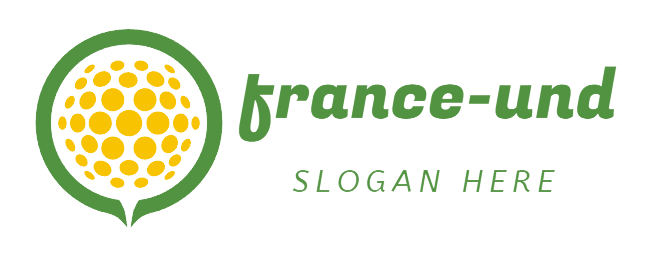The safety of public health measures is always a delicate balancing act. Vaccines are a key tool in the healthcare professional’s arsenal against the spread of infectious diseases. But, this important measure comes with its own share of controversy in regards to legislation and mandates. This article will explore the difficulty of ensuring public health without taking away individual rights.
1. Understanding Vaccine Mandates: Weighing Healthcare Benefits & Ethics
Vaccine mandates are a hotly debated topic in the U.S. today, and it’s becoming increasingly important to understand all aspects of this critical issue. To make an informed decision about the pros and cons of mandating vaccination, we need to look at both the healthcare benefits and the ethical implications.
The Benefits of Vaccine Mandates
- Vaccinations prevent the spread of diseases, allowing more people to stay healthy and minimizing the risk of epidemics.
- Disease prevention can significantly reduce healthcare costs.
The Ethics of Vaccination Mandates
- The right to religious freedom is a fundamental principle of the United States and should be considered when setting vaccine policy.
- Any decision to mandate vaccination should also include considerations for medical or other exemption requests.
On a practical level, it’s also important to consider the feasibility of enforcing vaccine mandates. Can government agencies effectively administer such a policy? Can any potential financial or staffing deficits be addressed? These are all important questions that need to be taken into account.
2. From Vaccine Data To Policy: Navigating the WTO and WHO Protocols
As nations around the globe race to vaccinate their populations, the World Trade Organisation (WTO) and the World Health Organisation (WHO) have been hard at work to ensure that everyone has access to life-saving vaccines. Central to this effort are the WTO and WHO protocols that must be followed when trading vaccines.
In order for trading countries to ensure compliance with these protocols, they must first understand the various protocols that are in place. At their core, the WTO and WHO protocols focus on the need to ensure fairness in the international market. This includes:
- Establishing fair pricing. No one should be able to exploit vulnerable populations by using unfair pricing.
- Ensuring that countries have access to certain vaccines. WHO protocols require that developed countries guarantee the access of certain vaccines to developing countries.
- Implementing WTO rules. All countries must abide by WTO rules when trading or risk facing trade sanctions or being barred from further trading.
In addition to these protocols, the WTO and WHO have established other agreements to regulate trade, such as the Agreement on Trade-Related Aspects of Intellectual Property Rights (TRIPS). This agreement ensures that WTO members recognize and protect intellectual property rights, including pharmaceutical patents. It also requires countries to ensure that essential medicines are accessible to everyone, regardless of their financial means.
For governments and health officials, these protocols are essential for ensuring that the global market for vaccines is fair and equitable. By understanding and adhering to the WTO and WHO protocols, countries can ensure that their populations have access to the life-saving vaccines they need.
3. National Laws Versus Global Health: Evaluating Best Practices for Vaccine Legislation
The debate between the importance of national laws and global health is long-standing. Vaccines can be an effective tool in improving global health, yet the implementation of immunization laws involves a complex balance of domestic and international interests. When assessing best practices for vaccine legislation, it’s vital to consider the implications of both national and global laws.
National Laws
National laws are key to establishing the legal foundation needed to protect citizens from widespread disease outbreaks and provide vaccination services. National governments should assess their risk factors, consider the capabilities of their healthcare systems, and develop relevant legislation.
In this regard, governments must broaden the public understanding of the benefits of immunization and develop public education campaigns to reach vulnerable populations. Additionally, policies should be enacted to protect the rights of those who do not wish to receive vaccinations, as well as those who have religious or philosophical objection.
Global Health
On the global health front, it’s important to ensure nations are providing universal access to health services, diagnostics, and preventive care. In many developing countries, the issue of immunization goes beyond a political mandate or a medical issue; it’s an economic issue too. To achieve global immunization, it’s important to understand the socioeconomic contexts in which people live. It’s also vital to identify existing healthcare disparities and make healthcare more affordable and accessible to all populations.
In terms of vaccine legislation, greater coordination between international healthcare organizations, governments, healthcare providers, and public health experts would greatly benefit developing countries. Additionally, governments should consider global technology solutions that would expand access to vaccines and other health services. In sum, a greater focus on implementing global health initiatives and programs would help nations reach universal immunization coverage.
4. Vaccine Policy and the People: Examining Social Equity and Accessibility
The development of vaccine policy is not only deeply entwined with the safety of the population and the advancement of scientific knowledge, but also with considerations of social equity and accessibility. Here are four key issues to consider in this area:
- Cost – Many countries have deployed free or heavily subsidized vaccines against a range of illnesses, however a significant portion of the population still find them unaffordable. Low- and middle-income countries often lack the financial infrastructure or expertise to create and manage fair pricing mechanisms for many of these inputs.
- Vaccine Distribution – Providing vaccines to all at-risk individuals requires a comprehensive distribution chain, including storage, handling, and transport of refrigerated drugs. This requires dedicated infrastructure, personnel and investments in individual countries, raising questions of social and economic disparities throughout regions.
- Education – Increasing access to vaccines involves not only making sure everyone has physical access to them, but also to the knowledge of their safety and efficacy. Adequate communication of information and awareness campaigns will play a key role in building trust and endorsing the vaccine uptake among hard-to-reach and poor communities.
- Timelines – Public health strategies that focus on stepping up vaccine production usually enjoy public trust and support, however this pace of production or regulatory approval often causes a significant gap between those who receive a vaccine first and those who are usually left behind in the process.
Effective public health strategies must take these issues into consideration to ensure that everyone receives the same level of access to a safe and effective vaccine, regardless of their economic situation or geographical location. To achieve social equity and vaccine accessibility, clear strategies must be established to address these disparities and promote public health.
5. The Legal Debate Continues – Balancing Vaccine Mandates with Public Health Measures
The legal debate over public health measures and vaccine mandates has triggered great emotions throughout the country. On one side of the debate are those who support vaccine mandates, claiming that all children should be required to receive mandatory immunizations. These individuals argue that, only through mandated immunizations, can the public be adequately protected against serious illness.
On the other side are those who oppose vaccine mandates, citing religious or philosophical beliefs as their reason. These advocates feel deeply that it is their right and responsibility to choose which medical treatments they receive, including immunizations for their children.
- Proponents of vaccine mandates cite the importance of ensuring herd immunity
- Opponents of vaccine mandates stress parental choice
In the middle of the debate sits the United States legal system, tasked with forming a balance between public safety and individual rights. The outcome of the debate is mixed, as some states continue to uphold vaccine mandates while others are exploring additional methods to protect public health.
One such example is the Vaccine Education Mandate, which would require states to provide educational programs to parents wishing to exempt their children from mandatory immunizations. This type of measure is designed to provide parents with a better understanding of vaccine safety, allowing them to make more informed decisions for their families.
Governments around the world are supporting vaccine legislation and mandates in the interest of protecting public health. While these measures are well-meaning, it’s essential to properly consider the ethical implications of implementing large-scale vaccinations. Striking a balance between public health safety and individual rights is vital — for present and future generations.



